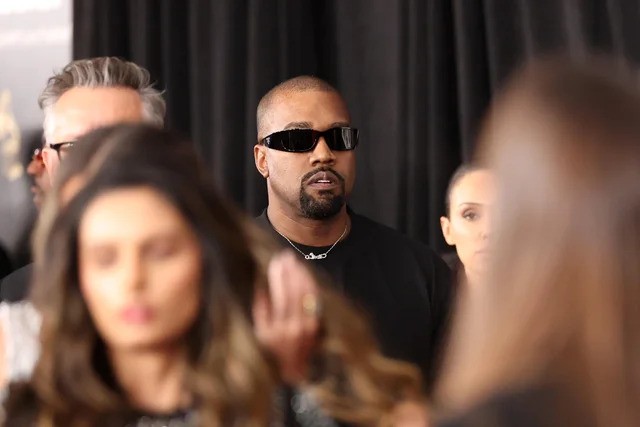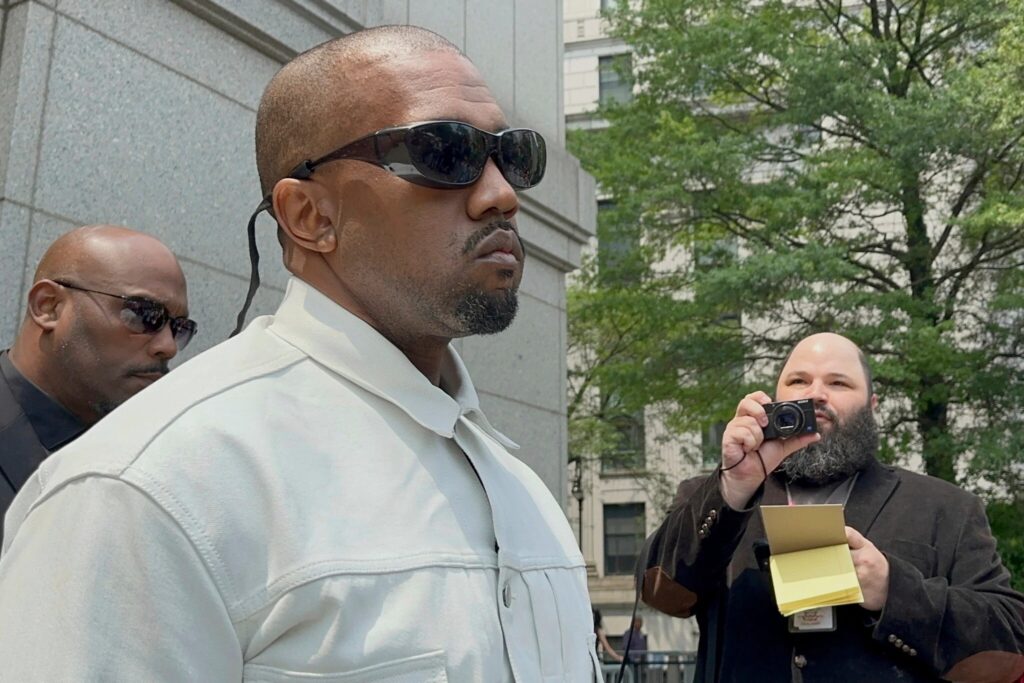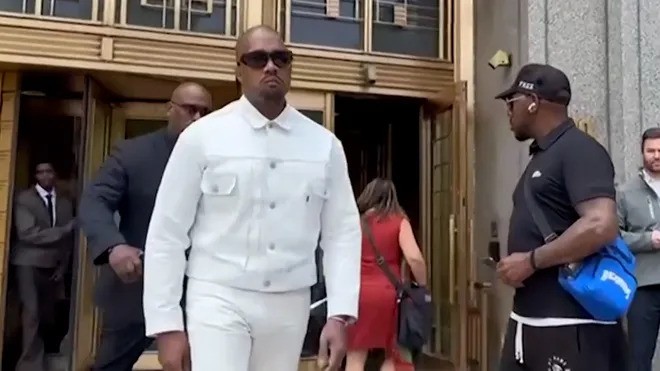In a powerful stand against hate speech and extremism, Australia has revoked the visa of Ye — the rapper formerly known as Kanye West — over the release of a shocking antisemitic anthem in May that has sparked global condemnation. The Australian government’s decision signals not only a rebuke of Ye’s escalating rhetoric but also reflects growing domestic concern over a surge in antisemitic incidents in the country’s major cities.
Ye’s song, which emerged online briefly before being scrubbed from major streaming platforms like Spotify and Apple Music, marks one of the most openly antisemitic musical releases by a global figure in recent memory. Layered over a militaristic drum-heavy beat and disturbingly sampling a 1935 Adolf Hitler speech, the track glorifies Nazism while weaving in Ye’s own voice praising the German dictator who orchestrated the genocide of six million Jews during World War II.
Critics and civil rights organizations swiftly condemned the track as hate speech masquerading as art. “There’s a difference between controversial expression and deliberate incitement,” said one human rights advocate. “This crossed every line imaginable.”
Australia’s Minister for Home Affairs, Tony Burke, announced that Ye’s visa had been officially revoked as a result of this latest offense. In an interview with the Australian Broadcasting Corporation, Burke explained that officials had reviewed Ye’s growing track record of antisemitic behavior following the song’s release and determined that allowing him into the country would contradict Australia’s values and endanger public harmony.
“He’s been coming to Australia for a long time. He’s got family here,” Burke acknowledged, referring to Ye’s wife, Bianca Censori, who was born in Australia. “But he’s made a lot of offensive comments that my officials looked at again once he released the [antisemitic song], and he no longer has a valid visa in Australia.”
Burke didn’t mince words: “We have enough problems in this country already without deliberately importing bigotry.”
While the song might have served as the final straw for Australian immigration authorities, Ye’s descent into antisemitic rhetoric spans years. Once celebrated as a musical genius and visionary cultural force, the rapper’s legacy has steadily deteriorated, marred by hate speech, conspiratorial thinking, and open admiration for Hitler.
Troubling allegations date back as early as 2018, when former employees of Ye began coming forward with stories of antisemitic language in the workplace. They described a disturbing environment in which conspiracy theories about Jewish people were openly discussed and where Ye allegedly praised Hitler’s strategies and leadership in internal meetings. These revelations were dismissed by some at the time as sensationalist or exaggerated — a common response in the early stages of a celebrity’s unraveling.
By 2022, Ye’s antisemitic views had burst into full public view. In a series of now-infamous interviews and social media rants, he blamed Jews for controlling the media, manipulating public perception, and sabotaging his career. He posted a tweet saying he was going “death con 3 on Jewish people,” a chilling misuse of a military term meant to describe heightened readiness for combat.
The fallout was immediate. Adidas, a long-time partner behind the successful Yeezy fashion line, dropped Ye, leading to an estimated $1.5 billion loss in his net worth virtually overnight. Balenciaga, CAA, and other business relationships also terminated their ties. But rather than expressing contrition, Ye doubled down — attending far-right rallies, associating with white nationalist figures, and continuing to post inflammatory content online.

Australia’s decision to bar Ye from entry comes at a time when the nation itself is grappling with a troubling rise in antisemitic attacks and sentiments. Since late 2024, a wave of violent incidents has targeted Jewish communities in Melbourne and Sydney, home to the vast majority of the country’s Jewish population.
A synagogue in Melbourne was firebombed late last year, followed by a string of arsons at Jewish-owned businesses and a daycare facility. In another horrifying episode, a Jewish family was harassed at a public park while their children wore yarmulkes. Graffiti of swastikas and “Jews out” slogans have appeared more frequently in recent months — on schools, playgrounds, and even near Holocaust memorials.
Jewish leaders have spoken out about feeling increasingly unsafe in their own communities. “We’re not talking about online harassment anymore — we’re talking about real, physical threats,” said one rabbi in Sydney. “There’s a growing sense of fear.”
Against this backdrop, Burke’s decision to block Ye is widely being interpreted as a statement of zero tolerance toward any figures — even world-famous celebrities — who might amplify or legitimize such hatred.
“Words matter,” Burke emphasized. “And when those words become songs that glorify genocide, we cannot afford to be passive. We cannot let that energy enter our country.”
International reaction to Australia’s ban has been largely supportive, particularly among Jewish advocacy groups and civil rights organizations. The Anti-Defamation Commission in Australia praised the government’s stance as “both moral and necessary.”
Dr. Dvir Abramovich, the commission’s chair, stated: “Ye has consistently shown himself to be a propagator of hate, and his words have consequences. Australia is doing what many nations should have done long ago — drawing a line in the sand.”
Under Australian immigration law, the government has the right to refuse or cancel a visa if the applicant is deemed to pose a risk to public safety or is likely to incite discord among the population. These provisions are rarely invoked against celebrities, making this decision a bold use of executive authority.
Legal scholars note that the move sets a precedent that may be tested if Ye attempts to challenge it, although no legal challenge has been filed as of now.
As expected, the decision has reignited debates about the limits of free expression — particularly as they apply to artists. Some of Ye’s defenders argue that banning him sets a dangerous precedent for artistic censorship. A few online voices, mostly from extremist platforms, have framed the decision as “political correctness gone mad.”
However, mainstream legal experts and free speech advocates stress that freedom of expression does not mean freedom from consequences — particularly when speech crosses into hate propaganda.
“There’s a difference between challenging ideas and glorifying one of history’s worst genocides,” said Professor Madeline Rorke, a constitutional scholar at the University of Melbourne. “This isn’t about unpopular opinions — it’s about incitement and violence.”
Interestingly, Ye himself has not publicly commented on Australia’s decision to ban him. His social media accounts have remained largely silent, and his representatives have declined interviews. Whether that signals a shift toward introspection or simply another pause before his next outburst is unclear.
In the past, Ye has oscillated between moments of apology and further radicalization, often walking back inflammatory comments before repeating them again in more extreme terms. This inconsistency, some experts argue, makes him especially dangerous — particularly to impressionable young fans who may view his shifting messages as part of a larger, misunderstood genius.

“His power lies in his unpredictability,” said a former associate. “You never know if he’s trolling, spiraling, or actually trying to build a movement. And that’s what makes him scary in today’s climate.”
Australia’s decision is not just about one man’s visa — it represents a broader moral reckoning. In a world where hate speech is increasingly disseminated through digital platforms, where public figures can build massive audiences independent of traditional gatekeepers, and where ideological extremism is growing, how nations respond matters.
“Ye is a global figure, and his actions reverberate far beyond the U.S.,” said an analyst at the Southern Poverty Law Center. “When a government says ‘no’ to someone like him, it’s sending a signal that antisemitism is not just unpopular — it’s unacceptable.”
As the world watches how other countries might respond to similar provocations, Australia has positioned itself as a nation unwilling to compromise when it comes to protecting vulnerable communities from hate.
What happened this week is bigger than a celebrity controversy or a visa denial. It’s a cultural and political flashpoint — a moment where a government had to decide whether artistic fame and notoriety should shield someone from accountability.
For Australia, the answer was no.
And for those who have suffered under the weight of antisemitism — both historically and today — that “no” is not just policy. It’s a promise.



